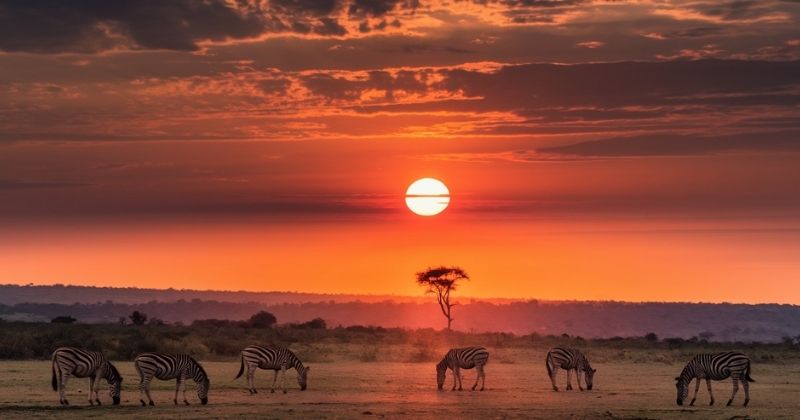
Many of the poorest nations are in Africa, but the continent is also home to some of the richest countries in terms of natural resources and economic growth. Economic instability, poverty, limited vaccine access, and conflicts have slowed recovery, but Africa hosts some of the world’s fastest-growing economies. Projections estimate that by 2050, the continent’s GDP could reach R529 trillion ($29 trillion), driven by agriculture, trade, and natural resources. While Africa remains the least developed continent and lags behind global wealth leaders, its growth potential is vast.
Key Takeaways
- Africa’s economic growth potential is significant: Projections estimate a GDP of R529 trillion ($29 trillion) by 2050, driven by key sectors like agriculture, natural resources, and trade.
- Nigeria, South Africa, and Egypt are among the top African economies: These countries benefit from diverse sectors such as oil, mining, and services, although they still lag behind the wealthiest nations globally.
- Challenges such as infrastructure deficits, political instability, and corruption hinder economic progress:These issues limit the development and global competitiveness of many African nations.
About Arcadia Finance
Effortlessly secure your loan through Arcadia Finance. Benefit from no application fees and a curated selection of 19 fully compliant lenders, ensuring you a quick, reliable, and hassle-free loan process that aligns with your financial needs.
Key Drivers of Economic Growth in Africa
Agriculture remains a crucial pillar of Africa’s economic growth, employing a significant portion of the population and contributing substantially to the GDP of many nations. Countries like Nigeria, Kenya, and Ghana heavily rely on agricultural exports, including cocoa, coffee, and tea, which generate essential revenue. As more nations invest in modern farming techniques and technology, productivity is expected to increase, further enhancing economic output. Additionally, Africa’s abundant natural resources, such as oil, gas, and minerals, continue to be key drivers of economic development. Nations like Angola, Algeria, and Botswana benefit from the export of these commodities, providing vital income for infrastructure development and social programmes.
Another significant factor contributing to Africa’s economic growth is the increasing focus on renewable energy and technological innovation. Many African nations are beginning to invest in solar, wind, and hydropower to diversify their energy sources and reduce reliance on fossil fuels. Countries such as South Africa and Morocco are at the forefront of renewable energy projects, creating jobs and minimising environmental impact. Furthermore, the rapid growth of technology hubs, particularly in Nigeria, Kenya, and Rwanda, is fostering innovation and entrepreneurship. These technology ecosystems are not only boosting economic growth but also attracting foreign investment, laying the groundwork for long-term prosperity.
Interested in seeing how these African giants compare to international heavyweights? Explore our in-depth look at the richest countries in the world and discover how global financial dominance is shaped.
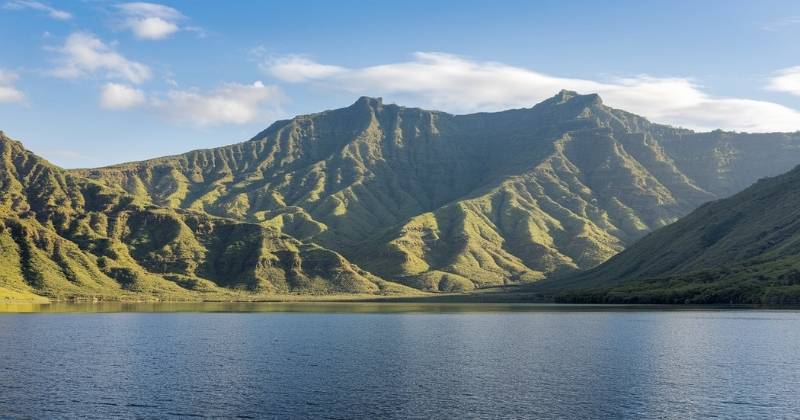
Assessing The Wealth Of African Nations Through Gross Domestic Product (GDP)
When comparing the economic strength of countries, gross domestic product (GDP) is one of the most reliable indicators. GDP represents the total value of all goods and services produced within a country in a given year. It is typically presented in two formats. The first is in current US dollars (USD or US$), which offers a straightforward monetary value. The second method adjusts GDP for Purchasing Power Parity (PPP), which accounts for differences in living costs between countries and expresses the GDP in international dollars (INT). The choice of method can result in varying rankings of countries’ economic standings.
Top 10 Wealthiest African Nations by Overall GDP

Nigeria: As Africa’s most populous nation, Nigeria boasts a broad-based economy, with notable contributions from the oil and gas industries, alongside growing sectors such as telecommunications and financial services.
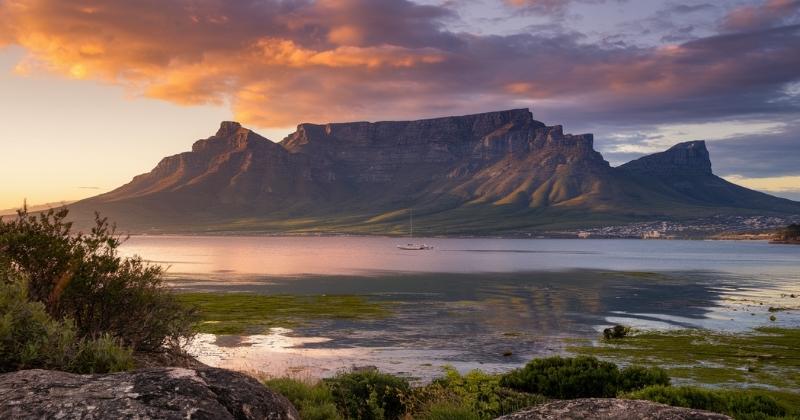
South Africa: South Africa’s economy is highly diverse, with substantial contributions from mining, agriculture, finance, and a robust services sector, making it a key player on the continent.
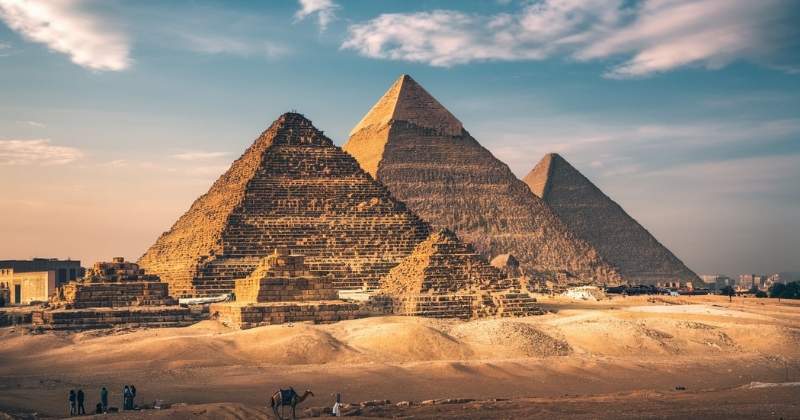
Egypt: Egypt’s economy benefits from a wide range of sectors, including tourism, energy production (notably oil and gas), and agriculture, all of which form the backbone of its national wealth.
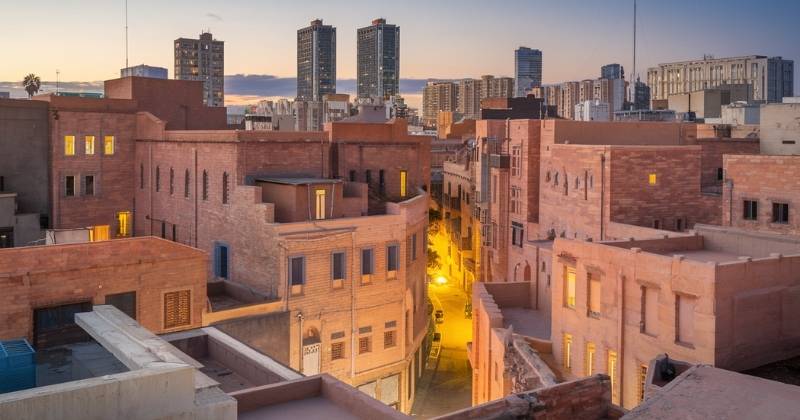
Algeria: Algeria’s economy is heavily influenced by its substantial reserves of oil and natural gas, which are the primary sources of its economic output and revenue generation.
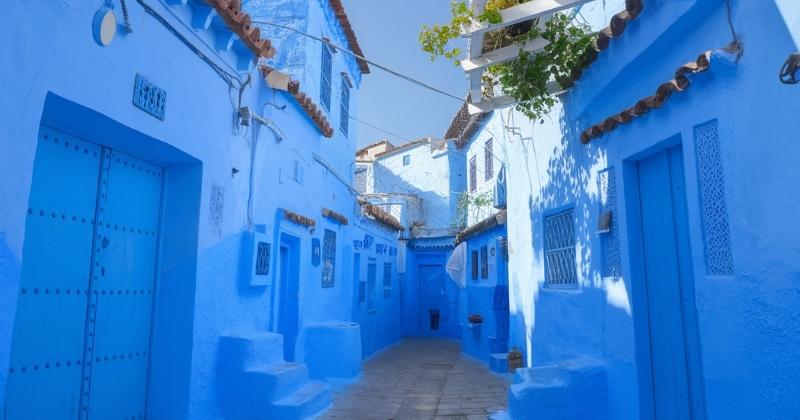
Morocco: Morocco has built a well-rounded economy with key industries such as tourism, agriculture, manufacturing, and a rapidly expanding service sector.
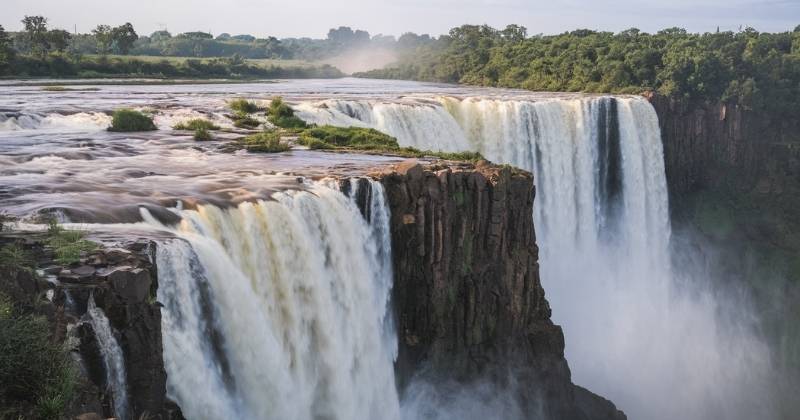
Angola: Angola’s economy relies heavily on its vast oil reserves, alongside other natural resources, which play a pivotal role in its overall economic structure.
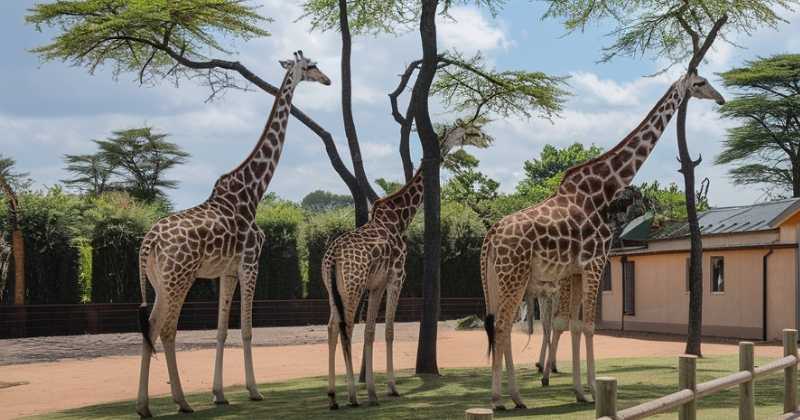
Kenya: Kenya is recognised as an economic hub within the region, with its economy being supported by a variety of sectors, particularly services, agriculture, and a strong tourism industry.
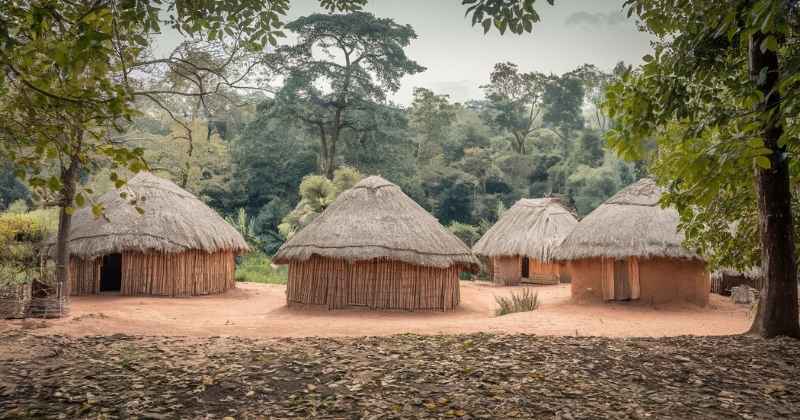
Ghana: Ghana’s economic foundation is largely based on its agricultural output, complemented by its oil and gas industries, and a thriving service sector that bolsters its GDP.
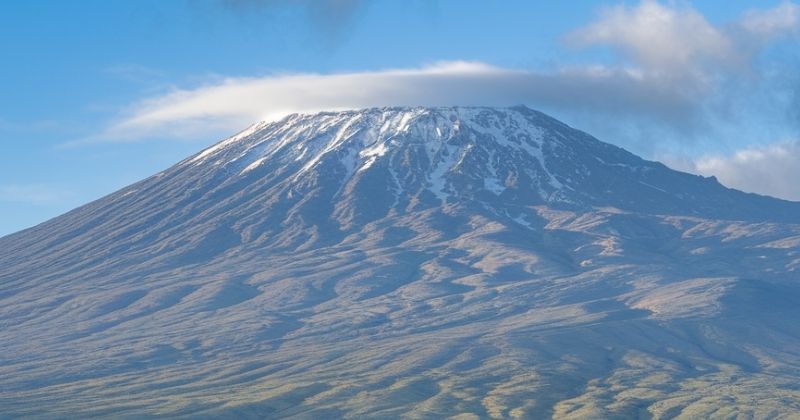
Tanzania: Tanzania’s economy draws heavily from agriculture, tourism, and the utilisation of its natural resources, forming a solid basis for its national income.

Ethiopia: Ethiopia has witnessed swift economic expansion, driven by sectors such as agriculture, manufacturing, and major infrastructural developments, contributing to its growing GDP.
South Africa and Nigeria often engage in a friendly rivalry, competing for the crown of Africa’s largest economy. Dive deeper into this fascinating tug-of-war in our detailed comparison of Nigeria vs South Africa and see which nation is currently leading the race.
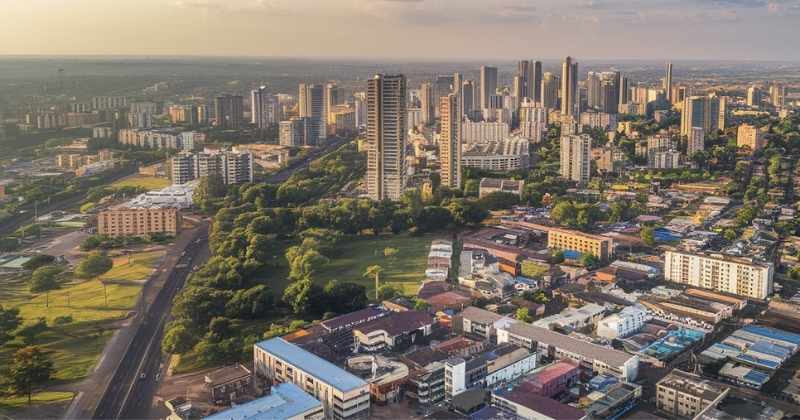
Limitations of GDP and the Benefits of GDP Per Capita
While GDP remains a highly useful indicator, it is relatively broad in scope. For instance, it does not account for the proportion of the population actively contributing to the country’s economic output. This means that a nation with a large, yet less productive workforce may report a higher GDP compared to another with a smaller but more efficient labor force. Moreover, GDP figures can be skewed by the financial sector, particularly in countries known as tax havens, although this issue is more prominent in Europe than in Africa.
To address these limitations, economists often rely on GDP per capita, which adjusts the gross domestic product by considering the population size. Another alternative is gross national income (GNI) per capita, which also factors in population size while being less influenced by activities related to tax havens.
Top 10 Wealthiest African Countries by GDP per Capita
- Seychelles: With a GDP per capita of R782 801 ($43 151), Seychelles ranks among the most affluent nations in Africa. Its prosperity is supported by a strong tourism industry and an abundance of marine resources.
- Mauritius: Boasting a GDP-PPP per capita of R573 896 ($32 094), Mauritius has transitioned from its traditional sugar and textile industries to a more diversified economy, making it the wealthiest nation on the continent.
- Libya: Despite ongoing political and economic difficulties, Libya remains high on the list with a GDP-PPP per capita of R477 196 ($26 456), largely due to its substantial oil reserves.
- Botswana: Known for its diamond-rich landscape, Botswana ranks highly with a GDP-PPP per capita of R364 159 ($20 097), benefiting significantly from its mining sector.
- Gabon: Gabon enjoys a GDP-PPP per capita of R353 014 ($19 452), supported by both its oil resources and a relatively small population, leading to higher income levels.
- Equatorial Guinea: With a GDP-PPP per capita of R335 339 ($18 378), this country’s wealth is largely generated from its oil exports, despite its small size.
- Egypt: Egypt holds a GDP-PPP per capita of R316 277 ($17 614). Its economic strength is built on a broad base, including industries such as tourism, agriculture, and manufacturing.
- Algeria: Algeria has a GDP-PPP per capita of R302 232 ($16 483), driven mainly by the country’s rich oil and gas industries.
- South Africa: With a GDP-PPP per capita of R299 792 ($16 424), South Africa continues to be a dominant economic player in Africa, supported by diverse sectors including mining, manufacturing, and finance.
- Tunisia: Rounding off the list, Tunisia has a GDP-PPP per capita of R241 283 ($13 645), with key sectors such as tourism, agriculture, and manufacturing contributing to its economy.
Even the wealthiest countries can struggle with debt. Explore our breakdown of countries with the highest debt to understand how nations, including African powerhouses, manage their financial liabilities.
Africa’s Growing Middle Class
Africa’s middle-class citizens are playing a pivotal role in transforming the continent’s economies, driving increased demand for goods and services. As more individuals move into this income bracket, urbanisation is accelerating, leading to the expansion of cities and the creation of new business opportunities. Consumer spending is rising, particularly in sectors such as retail, housing, telecommunications, and financial services. This shift is also fuelling job creation and stimulating domestic industries, helping to diversify economies that were traditionally reliant on natural resources. The rise of the middle class represents a key factor in Africa’s economic development, with long-term implications for sustained growth.
Africa’s richest nations often host some of the most expensive cities on the continent. To get an in-depth look at the cities where luxury meets high living costs, check out Africa’s 10 Most Expensive Cities to Live In.
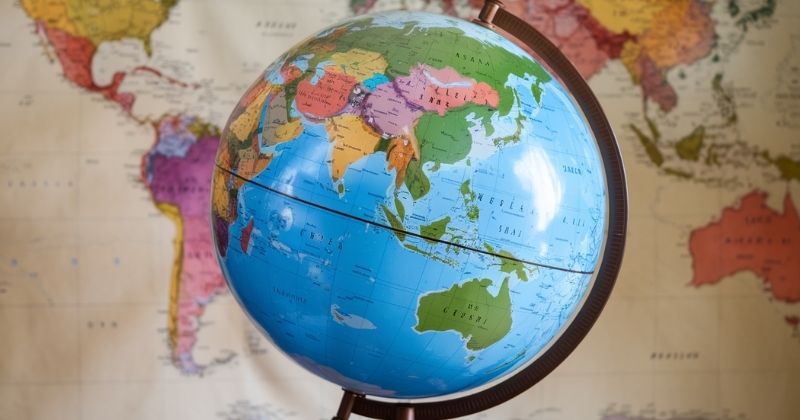
How Do Africa’s Wealthiest Nations Compare To Those On Other Continents?
When assessed from a global perspective, even Africa’s wealthiest nations tend to fall short when compared to those on most other continents. In 2021, the average Gross National Income (GNI) per capita in North America reached R1,279,932 (68,599 USD), while the European Union’s average GNI per capita was R704,070 (37,779 USD). However, Seychelles surpassed the global average GNI per capita of R224,409 (12,023 USD) in 2021, and several other African countries show the potential to match and possibly exceed that benchmark in the near future.
While some African nations boast significant wealth and resources, others struggle with extreme poverty. For a balanced view of the continent’s economic landscape, delve into our feature on the Poorest Countries in Africa, which highlights the challenges faced by these nations.
Challenges Facing African Economies
African nations continue to grapple with significant challenges that hinder their economic development. One of the most pressing issues is the widespread infrastructure deficit, which affects essential services such as transportation, electricity, and water supply. Poor infrastructure limits industrial growth, raises the cost of doing business, and reduces competitiveness on the global stage. In many countries, unreliable power supply and underdeveloped road networks make it difficult for businesses to operate efficiently, stifling growth and investment opportunities.
In addition to infrastructure issues, political instability and corruption are major barriers to economic progress in several African nations. Frequent changes in government, conflicts, and civil unrest create an environment of uncertainty, making it difficult to attract foreign investment and maintain sustainable development. Corruption at various levels of governance further exacerbates these challenges, diverting resources away from critical areas such as education and healthcare. As a result, many African countries struggle to provide adequate public services, leading to a poorly educated workforce and limited access to healthcare, which further undermines long-term economic growth.
Conclusion
While Africa faces significant challenges such as infrastructure deficits, political instability, and widespread poverty, the continent’s economic future remains promising. Several African nations, including Nigeria, South Africa, and Egypt, have established themselves as key players through diverse economies bolstered by natural resources, agriculture, and services. The potential for growth is evident, with projections of substantial economic expansion by 2050. Though Africa’s wealthiest countries currently lag behind those in other continents, strategic investment in technology, renewable energy, and infrastructure could drive sustained development, creating opportunities for long-term prosperity across the continent.
Frequently Asked Questions
The top 10 richest countries in Africa by GDP are Nigeria, South Africa, Egypt, Algeria, Morocco, Angola, Kenya, Ghana, Tanzania, and Ethiopia. These economies thrive due to sectors such as oil, mining, agriculture, and services.
Gross Domestic Product (GDP) represents the total value of all goods and services produced within a country in a year. It is often used as a measure of a nation’s wealth, as it provides insight into the country’s economic output and overall performance.
Seychelles, Mauritius, Libya, Botswana, and Gabon lead in GDP per capita, as their smaller populations and resource-rich economies result in higher average income per person.
Key industries driving growth in Africa’s wealthiest countries include oil and gas, mining, agriculture, tourism, and emerging sectors like technology and financial services.
While Nigeria is Africa’s largest economy, it still lags behind wealthier countries on other continents. In 2021, Nigeria’s GDP per capita was significantly lower than the global average, despite its strong oil sector and rapidly expanding telecommunications and financial industries.
Fast, uncomplicated, and trustworthy loan comparisons
At Arcadia Finance, you can compare loan offers from multiple lenders with no obligation and free of charge. Get a clear overview of your options and choose the best deal for you.
Fill out our form today to easily compare interest rates from 19 banks and find the right loan for you.


